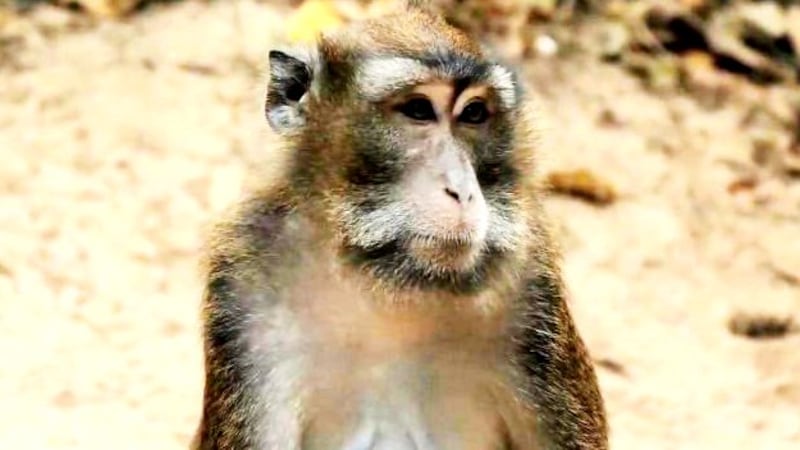Congresswoman draws attention to testing on S.C. island monkeys

CHARLESTON, S.C. (WCSC) - About 15 minutes off the coast of Lady’s Island sits Morgan Island, home to a colony of about 3,500 rhesus monkeys.
The federal government uses the colony, which has existed since 1979, as a source for federal laboratories.
Congresswoman Nancy Mace says she is appalled to have learned about the animal testing, calling the practice “barbaric.”
“Some of the examples of the [experiments] that we’ve been able to find out about involved injecting the rhesus monkeys with MERS, with Ebola, with tuberculosis, for example. You can read some of the other articles that are out there. I can’t look at the pictures because they’re so gruesome,” she said.
On Thursday, Rep. Mace invited reporters to boat around the island, which is not open to the public.
The island is owned by the South Carolina Department of Natural Resources, which leases a portion of it to a federal contract. Erin Weeks of the Marine Resources Division of SCDNR says the current federal contractor is pharmaceutical company Charles River, which has a location in Charleston. The monkeys are used for public health research by the National Institute of Allergy and Infectious Diseases. Weeks says no research is conducted on the island.
A spokesperson with Charles River says horseshoe crabs are the only animal involved in research at the Charleston lab. In an e-mailed statement, Sam Jorgensen wrote, “Charles River is contracted by the National Institutes of Health and our work on Morgan Island is limited to the care and oversight of the colony there. Across our organization we are committed to upholding the highest standards of welfare for the animals entrusted to our care.”
When asked for comment on Rep. Mace’s allegations, Live 5 News received a statement from the National Institute of Allergy and Infectious Diseases:
Government researchers work with approximately 400-600 rhesus macaques from Morgan Island annually for research that helps develop life-saving prevention tools and treatments for diseases affecting public health. The island is currently owned by the South Carolina Department of Natural Resources and leased by Charles River Laboratories, Inc., as part of a contract with the National Institute of Allergy and Infectious Diseases (NIAID). The maintenance of the colony is conducted in accordance with all federal laws, regulations and policies, and the animals are provided food, water, and veterinary and other care both on and off the island. No research is conducted on the island.
All animal study proposals, including those for work with non-human primates, must be reviewed by an Institutional Animal Care and Use Committee (IACUC) composed of veterinarians, community , and scientists. Each proposal is evaluated for painful or stressful procedures. It is up to each individual IACUC whether an animal study proposal is approved or denied. Research involving the use of non-human primates by National Institutes of Health (NIH) intramural researchers undergoes two vigorous scientific merit reviews prior to review by the IACUC. Research is conducted in an Association for Assessment and Accreditation of Laboratory Animal Care International (AAALAC)-accredited facility in accordance with the Public Health Service Policy on the Humane Care and Use of Laboratory Animals and the Animal Welfare Act. The principles for what is – and is not – allowed are described in the Guide for the Care and Use of Laboratory Animals and are istered by the NIH Office of Laboratory Animal Welfare and the U.S. Department of Agriculture.
Rep. Mace says animal testing is largely unnecessary with the advance of technology.
“The FDA has said these kids of experiments are unnecessary. The percentage – it’s probably 80 or 85 percent in the data that I’ve read, that when you do these kinds of animals experiments and then transfer it to humans, there’s really not that much of a correlation,” she said.
Copyright 2021 WCSC. All rights reserved.














